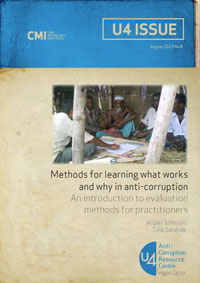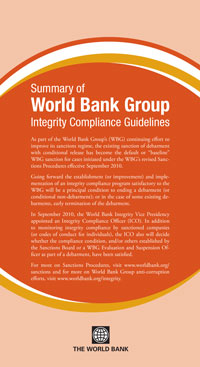
This paper offers practical guidance to practitioners who design, implement, and disseminate evaluations and research on anti-corruption. A range of quantitative and qualitative methods can be used to answer operational questions on the impact of anti-corruption interventions. Although some methods can produce stronger evidence than others for a specific evaluation, there are tradeoffs between rigour and costs and between aspiration and feasibility. Donors should let the evaluation question, programme attributes, and availability of data determine the most appropriate methods for a given study. With careful planning and adequate resources, donors can use many of the methods presented in this paper. This should give more reliable results and produce needed knowledge on what works in anti-corruption, laying the basis for more effective anti-corruption initiatives. U4 is a web-based resource centre for development practitioners who wish to effectively address corruption challenges in their work.
For more information please
visit the site

The Summary of World Bank Group Integrity Compliance Guidelines incorporates standards, principles, and components commonly recognized by many institutions and entities as good governance and anti-fraud and corruption practices. Although they are directed principally at sanctioned “parties,” others are encouraged to consider their appropriateness for adoption. They are not intended to be all-inclusive, exclusive or prescriptive; rather a party’s adoption of these Guidelines, or variants thereof, should be determined based on that party’s own circumstances.
For more information please
download the document Eng
 International Affairs and Security Issues - Think Tanks & Organisations
International Affairs and Security Issues - Think Tanks & Organisations
Page 7 of 7



